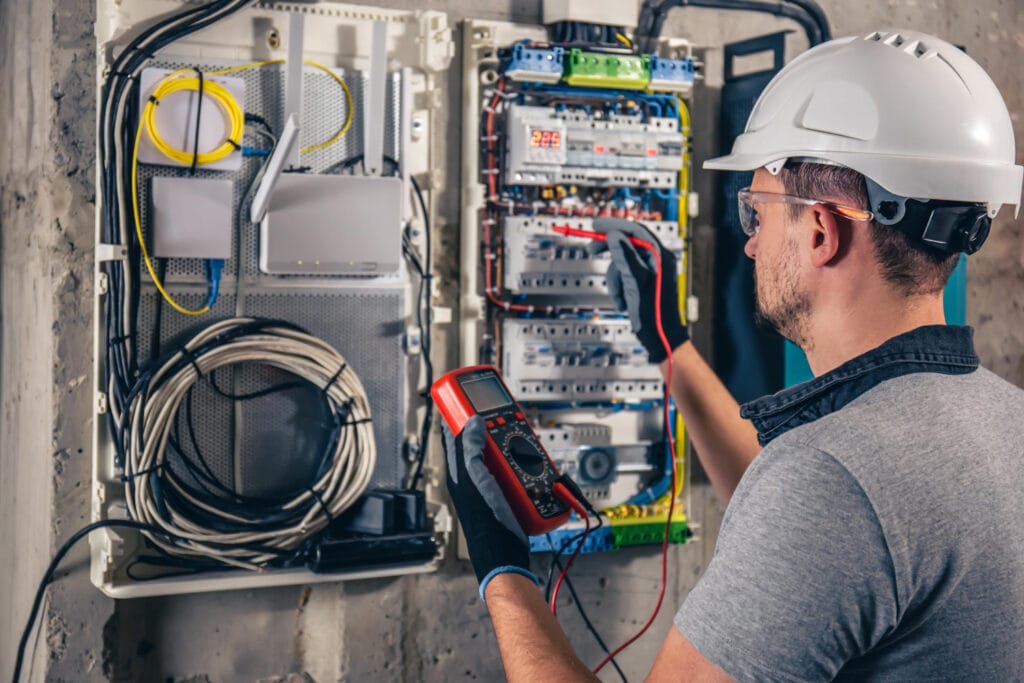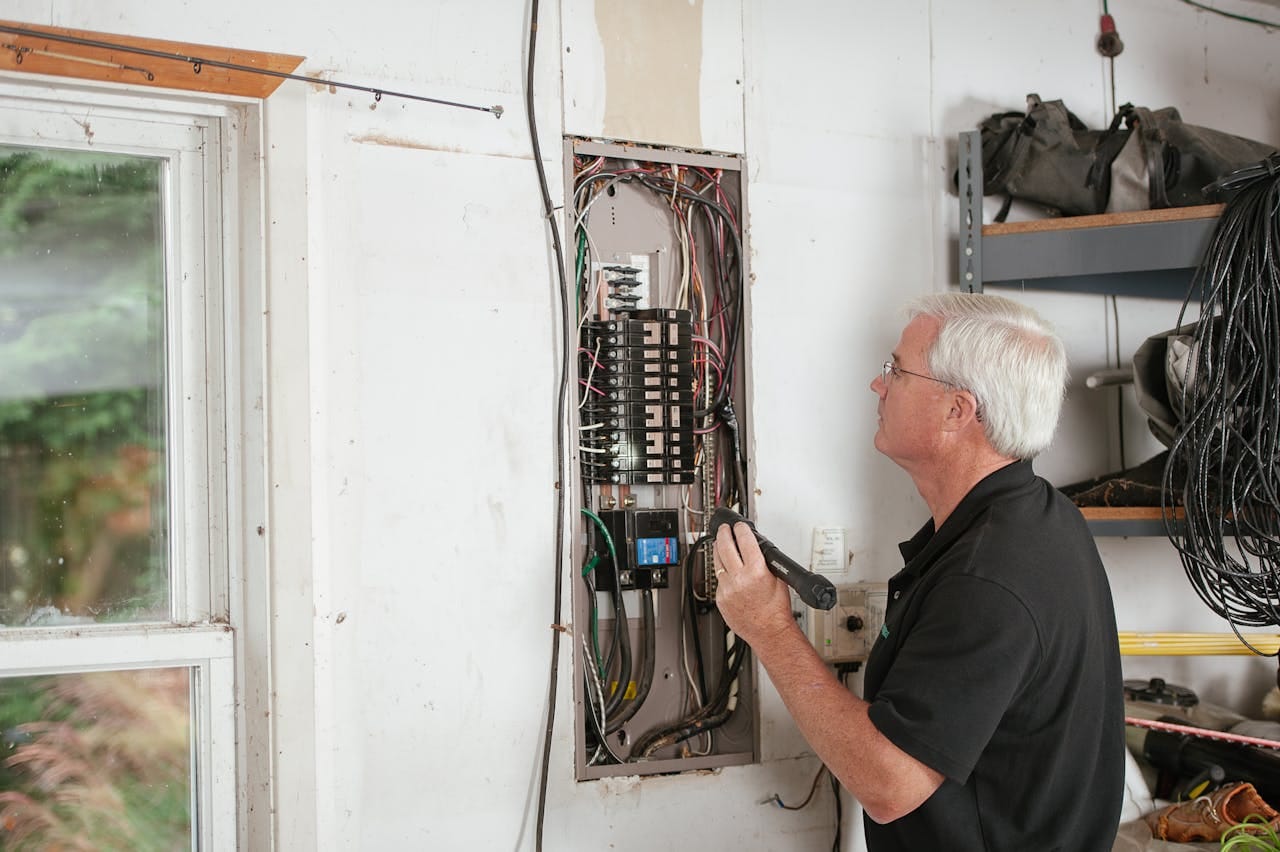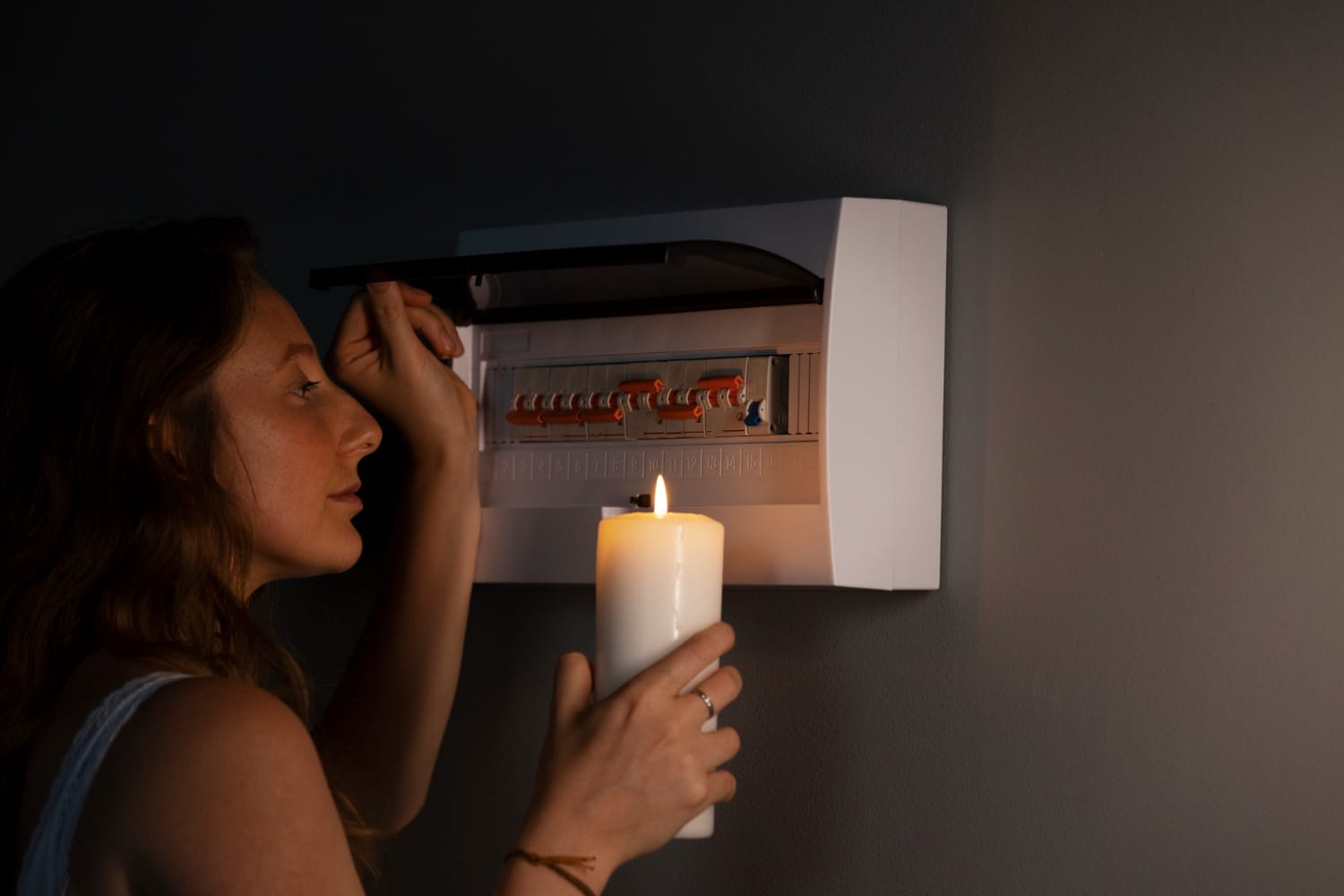Your home’s electrical panel works behind the scenes to keep everything powered and running smoothly. It sends electricity out to your lights, appliances, and outlets. But like anything with limits, panels can only handle so much at once. When that limit is reached, problems start to show. Ignoring them can lead to bigger headaches like damaged devices or even fire hazards.
Many homeowners in Ottawa live in houses that were not built for current electricity needs. As more devices, kitchen appliances, and smart home tech pile up, older panels can begin to strain. If you’ve noticed flickering lights or tripping breakers lately, your panel might be working a little too hard. Here are some signs to watch for before things get worse.
Flickering Or Dimming Lights
Lights that flicker or dim at random times can be a warning sign that your panel is trying to handle more than it should. At first, it might not seem like a big deal. Maybe a bulb just needs tightening or you think it’s a wiring issue in a particular room. But when lights flicker across your home, especially when turning on large appliances, that’s usually tied to the power supply being stretched too thin.
This happens because the demand for electricity in your home rises past what your electrical panel was designed to handle. The panel struggles to distribute power evenly, which leads to inconsistent lighting. Some rooms might get less voltage. Other times, you may notice the lights dim when you start the microwave or when your air conditioning kicks in during warmer June days.
Here’s a simple example. You turn on your vacuum while someone’s running the dryer and cooking in the kitchen. The lights in the hallway start to dim, or worse, the power cuts momentarily. That’s your electrical panel waving a red flag.
Instead of brushing it off, take mental notes of when and where it happens. Does it only flicker at night? Or every time you switch on an appliance? Paying attention to these small signs can help you stay ahead of bigger issues.
Frequent Circuit Breaker Trips
Circuit breakers trip when they sense more current than the wiring can safely carry. It’s actually a smart safety system. It shuts off the power before things become dangerous. Still, if you’re often running to the breaker box, something’s not right.
An overloaded panel sends more energy than the circuits are designed to handle. That’s when breakers flip and cut the power to prevent overheating. If this becomes part of your weekly routine or even happens more than once a month without explanation, your panel is probably working over its limit.
Here’s what to keep an eye on:
– Breakers that trip when you plug in something new
– Certain rooms that lose power more than others
– Breakers that refuse to reset or trip again right after being reset
Instead of just flipping the switch and moving on, take note of how often it happens. Write down what appliances were in use and which parts of the house were affected. That info helps pinpoint what’s pushing your system too hard.
When your home’s power needs outgrow an old or undersized panel, it puts too much pressure on a system not built for today’s usage. At that point, it’s worth looking into an upgrade before it becomes a bigger safety concern.
Burning Smells Or Scorch Marks
Smelling something unusual around your panel or outlets should never be ignored. A light burning smell, kind of like melted plastic or rubber, might mean something is overheating. If that smell is coming from the panel or a nearby outlet, it’s time to stop and get it looked at.
Scorch marks are another warning sign. If you see brown or black discolouration near breakers, outlets, or on the panel itself, it means heat has already been there. That could be from overloaded circuits or loose connections sparking inside the wall. Some people even notice heat coming off the panel door or a faint buzzing noise.
These signs point to real electrical trouble that needs to be checked by a licensed electrician. Leaving it alone or continuing to use your outlets as usual could cause damage quickly. Electrical fires often start this way—slow, silent, and hidden—until one day you’re dealing with major damage.
To stay ahead, look at your panel every couple of months. Give a sniff near outlets and panels. If it smells off, feels warm to the touch, or you see dark marks, stop using it and call a professional.
Can’t Run Multiple Appliances At Once
Have you ever used the microwave while your toaster oven was running and the power suddenly shut off? That’s probably not bad luck. It usually means your panel can’t handle the load your home’s placing on it.
Homes use more power today than they did a few decades ago. Think kitchen gadgets, phone chargers, smart speakers, smart thermostats, and even electric vehicles. Panels built 30 years ago just weren’t set up for this kind of use. What ends up happening is the breakers trip, or your appliances just won’t perform well.
Here are some signs your panel might be maxed out:
– Power cuts when multiple large appliances run at once
– Family members avoid using certain items at the same time due to past trips
– You’ve developed “house rules” about when it’s safe to do laundry or run the oven
If you’re constantly juggling appliance use just to keep the power on, it’s time to rethink your panel setup. You shouldn’t need workarounds just to make it through your day. A modern panel gives you flexibility and takes the strain off your system.
Getting Ready For An Electrical Panel Upgrade
If any of these issues sound familiar, now’s a good time to look ahead. An upgrade won’t happen overnight, but planning one can help avoid surprise outages or even damage.
Think about how your power needs have changed over the years. Maybe you’ve added a home office setup, recently bought a new AC unit, or put in garden lighting. Even something as simple as buying extra freezers over time adds up.
Consider a few things when planning:
– Have you brought in appliances recently that draw more power?
– Are extension cords and power bars now common in your home?
– Do you have plans to build out your space or finish a basement?
A licensed electrician will take a full look at your home, usage patterns, and future plans to figure out the capacity you’ll really need. A panel upgrade fixes current issues and gets you ready for anything else you might add down the road.
Listen to What Your Home Is Telling You
Paying attention to early clues from your electrical panel can help you avoid bigger repairs later on. Dimming lights, burnt smells, constant breaker flips—these are all warnings that your system is overloaded. The longer you go without addressing them, the higher the risk of damaged electronics, increased bills, or even fire.
Electricity use isn’t going down anytime soon. If your home’s panel hasn’t changed in years, but your use has tripled, that imbalance can create real problems. Upgrading gives your home the space and safety it needs as your family grows and your needs shift.
Spot the signs early and act before you’re forced to. A panel with the right capacity will keep your home safe, functional, and ready for whatever comes next.
If you’re noticing your electrical system struggling to keep up and are considering options for improvement, now might be the perfect time to explore electrical panel upgrades in Ottawa. Upgrading can help ensure your home stays safe, efficient, and ready for modern demands. Astra Energy Ltd offers expert advice and services tailored to meet your current and future electrical needs.



